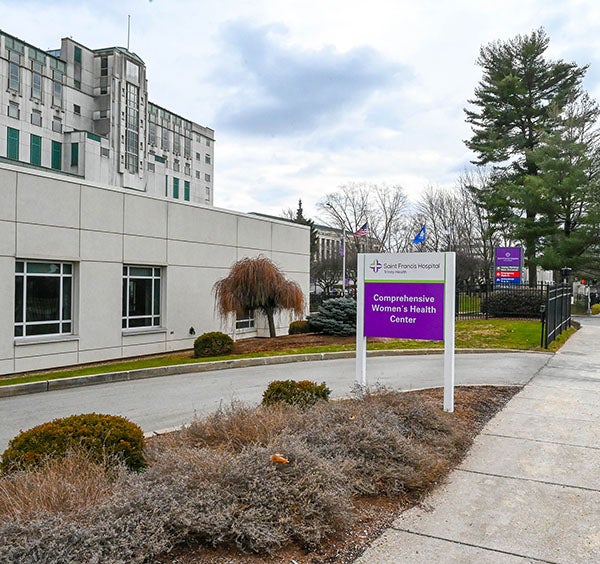Saint Francis Hospital Offers Innovative Procedure to Treat Uterine Fibroids
January 29, 2025Categories: Organizational Updates
Saint Francis Hospital is proud to announce the offering of the Sonata® procedure, a state-of-the-art, incisionless, transcervical solution for the treatment of uterine fibroids. The most common noncancerous tumors of the reproductive tract, fibroids are the most common cause of hysterectomy in the United States, with as many as 70 to 80 percent of women experiencing fibroids during their reproductive years.

Saint Francis is now offering the Sonata procedure to treat uterine fibroids, the most common noncancerous tumors of the reproductive tract.
The non-surgical Sonata® treatment uses radiofrequency energy to ablate fibroids from within the uterus without the need for any incisions. The innovative procedure is a breakthrough alternative to hysterectomy and myomectomy, performed under ultrasound guidance, ensuring precision and safety. The procedure, which has been used to treat over 10,000 women globally, uses radiofrequency energy to directly target and shrink fibroids from within the uterus without the need for any incisions.
“Uterine fibroids can cause significant and painful symptoms, and we are excited to be able to offer this minimally invasive treatment to our patients,” said Karianne Silverman, M.D., FACOG, Chair, Women and Infants Service Line, Saint Francis Hospital. “It is wonderful to have an alternative option to treat this common and often debilitating disease, and we are happy to provide our patients a treatment that offers faster recovery times and fewer complications.”
Uterine fibroids affect up to 80 percent of women by the age of 50. Symptomatic fibroids can cause a range of symptoms, including abnormal bleeding, including debilitating menstrual cycles, abdominal pelvic pain or pressure, urinary frequency, constipation, and more. Traditional treatments for fibroids have included medical and hormonal therapy, including hysterectomy, the removal of the uterus; myomectomy, surgical removal of fibroids; and uterine artery embolization, injections that block blood vessels around the uterus and can shrink fibroids over time.
Clinical studies for Sonata® have shows nearly 90 percent of women experienced a reduction in menstrual bleeding at three months, while 95 percent report a reduction at 12 months, and 94 percent of patients have reported satisfaction two to three years following the procedure. The treatment, which can be performed under sedation, can take anywhere between 15 minutes to an hour, depending on the number of fibroids present. More than half of women who undergo the procedure are able to return to normal activities the next day.
